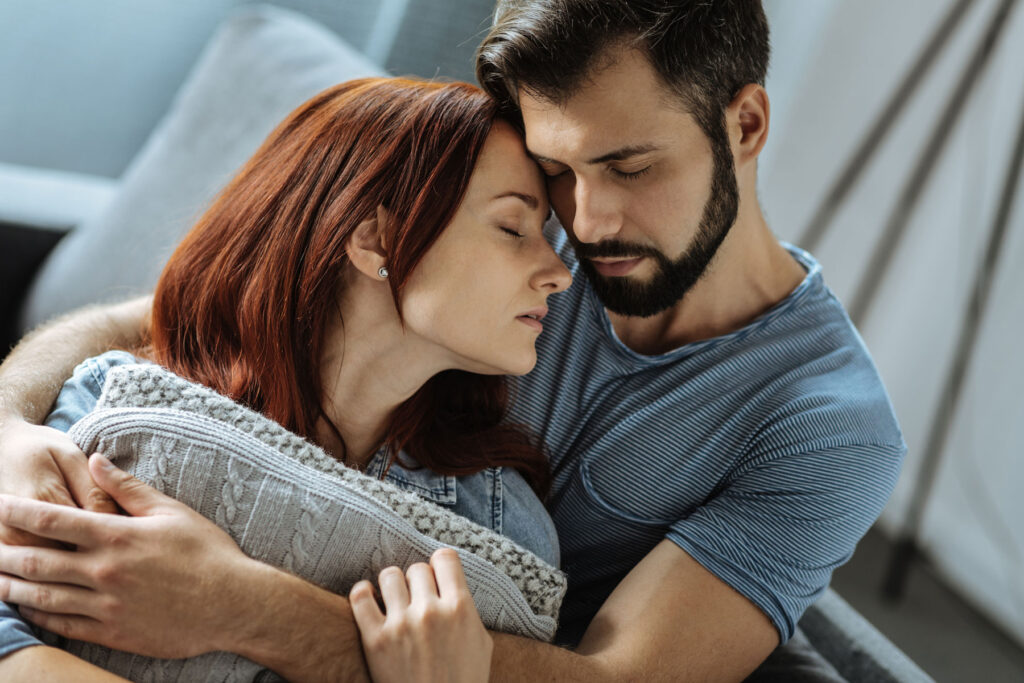Anxiety is one of the most common mental health conditions worldwide. There are numerous types of anxiety, the symptoms of which can range from mild to severe. Many people with anxiety disorders also struggle with substance abuse. Anxiety disorders can significantly impact all areas of life, including relationships.
At Recovery Ranch PA, we understand the far-reaching impacts of untreated anxiety. Our anxiety treatment program provides individualized care to address the unique ways anxiety impacts different clients. If anxiety has taken over your life, we can help you regain control. Call 717.969.9126 to discuss your treatment options. You can also connect with us online.
A Closer Look at the Types of Anxiety
Anxiety is part of the body’s natural response to stress. In regular doses, anxiety can be beneficial. For example, feeling anxious about a work presentation can push you to be fully prepared. Anxiety can also be a protective factor, as when it alerts you to a potential danger. However, persistent or chronic anxiety that interferes with daily functioning is unhealthy.
The first step toward learning to manage the symptoms of anxiety is to understand what type of anxiety you have. Following is a closer look at the different types of anxiety disorders:
- Generalized anxiety disorder (GAD) – GAD is characterized by chronic tension, anxiety, and intense worry with no apparent source.
- Post-traumatic stress disorder (PTSD) – PTSD can occur after experiencing trauma and is characterized by flashbacks, nightmares, and hyperarousal.
- Obsessive-compulsive disorder (OCD) – OCD is characterized by a pattern of intrusive thoughts, called obsessions, that trigger repetitive behaviors, called compulsions, performed to ease the obsessions.
- Panic disorder – Panic disorder is characterized by sudden, unexpected episodes of extreme fear with physical symptoms like shortness of breath, dizziness, and heart palpitations.
- Social anxiety disorder – Social phobias are characterized by overwhelming anxiety and self-consciousness that causes intense fear and avoidance of particular people, places, or activities.
Anxiety disorders frequently co-occur. For example, someone struggling with GAD or PTSD will often also experience panic attacks or have social anxiety disorder. Additionally, individuals with anxiety disorders also have higher rates of substance use disorders (SUDs) because of a reliance on drugs or alcohol to manage anxiety symptoms.
Recognizing an Anxious Attachment Style
Attachment theory describes how people form and maintain relationships based on their early experiences with caregivers. The four main attachment styles—secure, anxious, avoidant, and fearful-avoidant—can influence how we connect in relationships and our environment as a whole. An anxious attachment style is characterized by a strong need for intimacy and closeness, with a deep fear of rejection and abandonment. Individuals with an anxious attachment style may:
- Constantly seek reassurance and validation from their partner
- Be highly sensitive to signs of perceived distance or disinterest from their partner
- Rely heavily on their partner for validation and emotional support, often to an unhealthy degree
- Overanalyze, overthink, or misinterpret conversations and behaviors, often falsely perceiving something is wrong
- Struggle to trust their partner fully, even when things are going well
Having an anxious attachment style can stem from unpredictable, unreliable, or inconsistent caregiving during childhood. There is a well-established relationship between attachment styles and anxiety disorders. Individuals with an anxious attachment style are more prone to developing anxiety disorders, particularly social anxiety disorder and generalized anxiety disorder.
Comprehensive anxiety treatment at Recovery Ranch PA is designed to address not only the symptoms of anxiety but also the underlying factors that contribute to it, including attachment style. By giving clients the tools to improve areas like self-esteem, emotional regulation, setting boundaries, communication skills, and trust, we enable them to develop a more secure attachment style.
Get Started with Anxiety Treatment Today at Recovery Ranch PA
When left untreated, the symptoms of anxiety can take over, making it challenging to cope with daily life. Luckily, anxiety disorders are highly responsive to treatment for those who are willing to commit to getting better. At Recovery Ranch PA, we provide a welcoming, home-like environment where clients can receive the therapy and support needed to overcome anxiety and co-occurring conditions. Call 717.969.9126 or contact us online to get started with anxiety treatment today.

